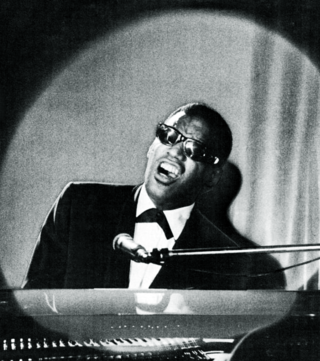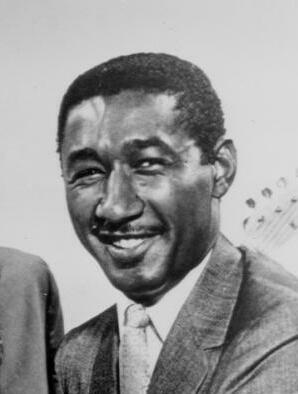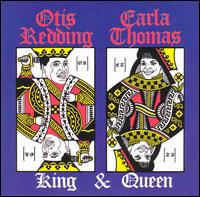Memphis Soul Record Labels
Stax Records

Jim Stewart and Estelle Axton converted an old movie theater into a recording studio at the corner of McLemore Avenue and College Street in Memphis, Tennessee. The studio was opened under the name, "Satellite Records", which was eventually changed to "Stax". [5] Former WDIA disc jockey Rufus Thomas and his daughter Carla recorded the label's first hit, "Cause I Love You." Soon after, The Mar-Keys, a local R&B group that included Estelle's son, Packy Axton, recorded "Last Night".
For the next 14 years, Stax Records launched the careers and recorded hits for the likes of Otis Redding, the Staple Singers, Luther Ingram, Johnnie Taylor, Albert King, Eddie Floyd, Wilson Pickett, Booker T. and the MGs, Sam & Dave and Isaac Hayes. Of the approximately 800 singles and 300 LPs recorded at Stax, there were 166 Top 100 songs in the pop charts and 265 Top 100 hits in the R&B charts, nine of them Grammy winners.
Under the leadership of Al Bell, the label became one of the first to evolve into a multimedia company, producing spoken-word recordings and the acclaimed documentary film Wattstax , recording an event known to many as the "Black Woodstock". The documentary featured performances by Luther Ingram, Isaac Hayes, Rufus and Carla Thomas, the Bar-Kays and the Staple Singers, along with the comedian Richard Pryor. It also included interviews on the 1965 Watts revolt.
Stax was one of the most successfully integrated companies in the country—from top management and administration to its artists. The company was founded by Stewart and co-owned by Axton. Al Bell eventually joined the team, becoming a co-owner of Stax Records in 1968. With 200-plus employees, Stax was one of the largest African-American-owned businesses in the United States in its time. Because of this, there was a large amount of influence from the African-American community, influencing the sound of Memphis soul music. By 1970, both Stax and Hi Records (described below) had African-Americans included in ownership.
The Stax rhythm section was the epitome of the label's integration. The M.G.'s represented racial harmony in Memphis during the Civil Rights era. Composed of Booker T. Jones, Steve Cropper, Donald "Duck" Dunn and Al Jackson, Jr., Booker T. & the M.G.'s provided the instrumental backing for Rufus and Carla Thomas, Sam and Dave, and many other artists, The group also recorded under its own name, including the instrumental hit "Green Onions". In later years, members of the group pursued their own individual careers. Jones worked with the singer and producer William Bell and co-wrote the blues classic "Born Under a Bad Sign". Cropper supervised the recordings of Otis Redding and co-wrote hits with Wilson Pickett and Eddie Floyd.
Hi Records

Hi Records was started by a trio of Sun Studio musicians—Ray Harris, Bill Cantrell and Quinton Claunch—and Joe Cuoghi, one of the owners of Poplar ("Pop") Tunes, a local record store, Hi Records' early releases were primarily rockabilly. While the label had success with this sound, rockabilly was declining in popularity, as was Hi Records. Finally, the label had its first hit, courtesy of Harris' friend, Bill Black. [6]
Just as The Mar-Keys "Last Night" grew Stax Records, the success of Bill Black's Combo changed Hi from a rockabilly label to an instrumental powerhouse during the early 60s. But as the decade wore on, Hi Records once again recognized a shift in the musical landscape, and, with the leadership of the producer, bandleader and songwriter Willie Mitchell, evolved into a successful soul music label.
The soul label first emerged on the national scene with Ann Peebles. Approached by Mitchell after an impromptu performance at the Rosewood Club, Peebles hit the charts in 1969 with "Walk Away" followed by "Part Time Love. She recorded "I Can't Stand the Rain" (1974) and the song was one of favorite song of John Lennon. [7]
After a chance encounter on tour in Texas, Al Green joined Willie Mitchell and Hi Records, and together they became the preeminent source for soul music in the 1970s. With hits such as "Tired of Being Alone," "Let's Stay Together" and "Take Me to the River," Green established a permanent identity and a sound for Hi Records, based around a house band which became known as the Hi Rhythm Section.
Mitchell made a name for Hi Records by working with a number of big soul artists (such as Ike and Tina Turner) who were associated with other record labels.
Goldwax Records
Quinton Claunch was a hardware store owner who had previously worked as a country music guitarist, session musician at Sun Records, songwriter and record producer, and had co-founded Hi Records in 1957 before selling his stake two years later. Russell was a pharmacist who was interested in becoming involved in the music business. [8]
The label had its biggest successes with James Carr, who had a series of hits on the R&B chart between 1967 and 1969, including "You've Got My Mind Messed Up" and "The Dark End of the Street". It also had some success with The Ovations, Spencer Wiggins, and Wee Willie Walker. [9] The label was dissolved in 1969, as a result of differences between Claunch and Russell as well as Carr's erratic behaviour. [10] In the mi
Notable Memphis Soul Artists










